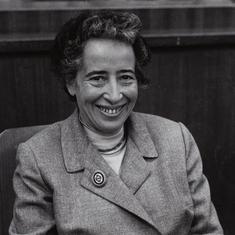Citizenship Act: Student groups write to US Congress, seek sanctions against Modi government
The signatories claimed that ‘Hindutva aims to erase India’s diverse myriad of cultures and faiths, redefining the country into a Hindu civilisation’.

Student organisations in the United States wrote a letter to the US Congress on Saturday against the Citizenship Amendment Act passed by the Indian Parliament on December 11. They called the Act “illegal and unconstitutional” and said it was aimed at explicitly enshrining religious discrimination into law. They asked for sanctions against officials of the Narendra Modi-led government.
Some of the student organisations that signed the letter were the Yale College South Asian Society, Columbia University South Asian Organization, Sikhs at Yale University, Brown University Muslim Students Association and Claremont College Committee for South Asian Voices. However, some members of organisations like the Harvard College South Asian Association and Princeton University’s Asian American Students Association did not sign the letter.
“On December 11th, the world’s largest democracy passed the Citizenship Amendment Act, an illegal and unconstitutional law aimed at excluding Muslims from Indian citizenship,” the letter. “By dividing Indians into Muslims and non-Muslims, the bill explicitly enshrines religious discrimination into law.”
The signatories said that ever since the Narendra Modi-led government came to power in 2014, it has, along with the ruling Bharatiya Janata Party, followed a “hardline and revisionist brand of Hindu nationalism”, called Hindutva.
They added that “Hindutva aims to erase India’s diverse myriad of cultures and faiths, redefining the country into a Hindu civilization and promoting violent and exclusionary attitudes toward Muslims”. The signatories also alleged that the Rashtriya Swayamsevak Sangh, the ideological parent of the BJP, “is a Hindu extremist group that drew inspiration from fascism” when it was founded in 1925.
“The Citizenship Amendment Bill is just the latest of India’s many steps to marginalize its population of 200 million Muslims,” the organisations said. They pointed out that the Indian government has imposed a communications blackout and lockdown on Kashmir’s population, which is predominantly Muslim, since the last four months.
The organisations said that the National Register of Citizens, which was rolled out in Assam in August, will strip hundreds of thousands of Muslims in Assam of their citizenship. “Those who are not listed on the registry can be put in mass detention camps and made stateless persons,” the signatories alleged.
The organisations also claimed that hate crimes such as mob lynchings against Muslims have increased exponentially since the BJP-led government came to power in 2014.
The signatories condemned the “police brutality” against protestors demonstrating against the Citizenship Amendment Act, and said they would back the “civil disobedience movement” against the Act. The signatories demanded that the United States House of Representatives to pass Resolution 745 urging India to end restrictions on communications in Jammu and Kashmir.
The signatories also said that the United States Congress should impose sanctions on the officials of the Narendra Modi-led government until it repeals the Citizenship Amendment Act and the National Register of Citizens. They also asked the United Nations to take action against India for its allegedly undemocratic and unconstitutional treatment of Muslims.
The letter was written by Yale South Asian Society Political Chairperson Shreeya Singh, and edited by Yale Muslim Student Association Member Ziad Ahmed.
Sixteen people have been killed in India in the anti-Citizenship Act protests that erupted in India last week. The first deaths were reported in Assam where the police opened fire on protestors on December 17. Two people were killed in police firing in the coastal city of Mangaluru in Karnataka on December 19. The highest number of deaths have been reported from Uttar Pradesh, where 11 people were killed on December 20.
Over the last week, the internet was suspended in the whole of Uttar Pradesh and in several state districts, with bans imposed on public gatherings under Section 144 in several states. Thousands of protestors were detained across the country, with 3,000 detentions in the state of Assam alone, where 329 people were arrested. On a single day – December 19 – the authorities confirmed 1,200 people had been detained in Delhi.
The police fired tear gas shells in two university campuses and a hospital as street battles raged between the police and the protestors in many places across the country. Many protestors and policemen have been injured. In some places, property was damaged.
The Citizenship Amendment Act aims to provide Indian citizenship to people from six persecuted minority religious communities in Bangladesh, Afghanistan and Pakistan, except Muslims, as long as people from these communities have entered India on or before December 31, 2014.









